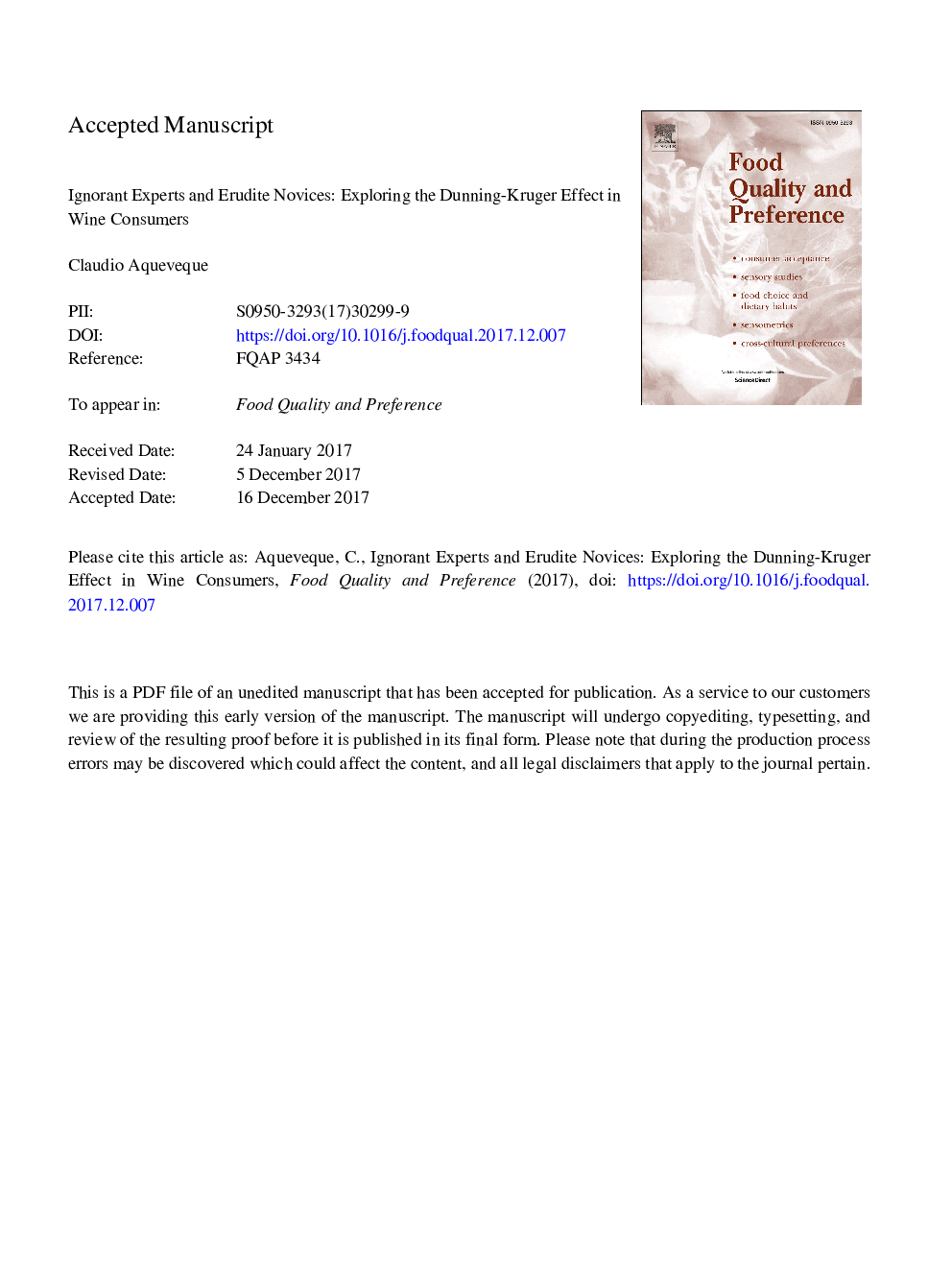| Article ID | Journal | Published Year | Pages | File Type |
|---|---|---|---|---|
| 8838552 | Food Quality and Preference | 2018 | 17 Pages |
Abstract
Research devoted to identify differences between expert and non-expert consumers in terms of wine quality perceptions, preferences, and information use and processing, have been prolific during the last decade. Many of these studies have used subjective or self-reported measures of knowledge to distinguish between expert and non-expert consumers. However, this approach can be problematic due to the existence of the Dunning-Kruger effect, a cognitive bias in which incompetent or unaware subjects tend to overestimate their knowledge or expertise, whereas high-ability individuals tend to underestimate it. The objective of this study was to explore the presence of this cognitive bias within the wine-knowledge domain. Using a sample of wine consumers (nâ¯=â¯193) and through different statistical analyses, the presence of the Dunning-Kruger effect was confirmed, raising important concerns regarding the use of subjective or self-reported measures of knowledge to classify consumers as experts or non-experts.
Related Topics
Life Sciences
Agricultural and Biological Sciences
Food Science
Authors
Claudio Aqueveque,
